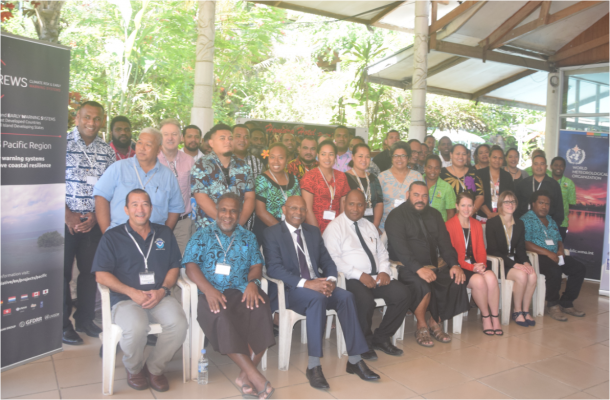The WMO has begun working with national meteorological and hydrological services (NMHS) in the Pacific Small Island Developing States (SIDS) to strengthen their disaster preparedness and risk reduction for extreme weather.
Two areas being looked at are impact-based forecasts and early warning services, which are extremely important in SIDS in the Pacific as tropical cyclones are a regular hydro-meteorological hazard in the region.
WMO is working with its members, regional and international partners to improve resilience in some of the world’s most vulnerable nations. A WMO workshop in Honiara, Solomon Islands, in September 2019, provided training on how to provide impact-based forecast and early warning services to local communities.
The workshop was attended by 70 participants from NMHSs and National Disaster Management Offices in the Pacific, as well as international and regional development organizations and media partners.
The workshop demonstrated the paradigm shift from forecasting and early warnings using hydro-meteorological parameters to warnings based on impact and vulnerability. In other words, moving from what the weather will be, to what the weather will do.
Participants also discussed the need for improved communication to the communities to tell the people what is going to happen, when, where, and how serious.



